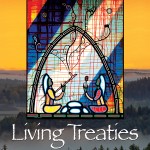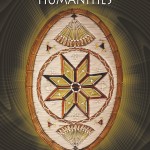Latest reviews in praise of Mi’kmaw essays
 We are so pleased with the latest reviews for two recent collections edited by respected scholar Marie Battiste (University of Saskatchewan). What a pleasure it has been to work with Marie and so many dedicated scholars and contributors to these two collections.
We are so pleased with the latest reviews for two recent collections edited by respected scholar Marie Battiste (University of Saskatchewan). What a pleasure it has been to work with Marie and so many dedicated scholars and contributors to these two collections.
The latest addition of the Canadian Journal of History (2018, 53 (1): 117-19) includes a review of Living Treaties: Narrating Mi’kmaw Treaty Relations (CBU Press 2016).
“[P]erhaps, the most nuanced and detailed treaty history … about the region.”
“[A] core teaching in this book—brought about by its collaborative framing—is the way in which treaties are embedded within community relationships. Treaties are not just acts and documents remembered, but relationships that continue to shape daily lives in Mi’kma’ki.”
 “Living Treaties is a book that teaches us much about the diplomatic practices Mi’kmaq have used in both the past and present; especially in the way that they have been protected and maintained beyond the reaches of institutional systems of knowledge and power. With its accessible tone and approach, Living Treaties is suitable for all mature readers. In the way that it introduces treaty and diplomatic relationships in Mi’kma’ki, and the colonial societies built upon the Land, the book should be required reading for senior high school students and undergraduates studying throughout Mi’kma’ki. Similarly, the book is an important resource for scholars, lawyers, and policy-makers working on treaty relationships throughout the country.”
“Living Treaties is a book that teaches us much about the diplomatic practices Mi’kmaq have used in both the past and present; especially in the way that they have been protected and maintained beyond the reaches of institutional systems of knowledge and power. With its accessible tone and approach, Living Treaties is suitable for all mature readers. In the way that it introduces treaty and diplomatic relationships in Mi’kma’ki, and the colonial societies built upon the Land, the book should be required reading for senior high school students and undergraduates studying throughout Mi’kma’ki. Similarly, the book is an important resource for scholars, lawyers, and policy-makers working on treaty relationships throughout the country.”
Link here to the full review: https://www.utpjournals.press/eprint/7en9V43M5FHzjpDQkwGE/full
In the autumn issue of The Canadian Journal of Native Studies (2017, 37 (2): 193-95), there is a review of Visioning a Mi’kmaw Humanities: Indigenizing the Academy (CBU Press 2017).
“Marie Battiste and colleagues address [the TRC imperative] through orienting a central aspect of Canadian society—the humanities—to the Mi’kmaw consciousness.”
Paraphrasing one of the book’s contributors (Nancy Peters), the reviewer goes on to say that “[d]econstructing problematic images of Mi’kmaq in Nova Scotia curriculum leads to a promising approach to allyship grounded in learning from educational resources and priorities outlined by Mi’kmaw knowledge carriers.”
 “[Visioning a Mi’kmaw Humanities ] has widespread applications across disciplines[,] an important decolonizing work for students of education, Native and Indigenous studies, political science, environmental science, legal studies, linguistics, and any field where Indigenous regeneration of cultural practices and resistance to ongoing impacts of colonialism are studied.”
“[Visioning a Mi’kmaw Humanities ] has widespread applications across disciplines[,] an important decolonizing work for students of education, Native and Indigenous studies, political science, environmental science, legal studies, linguistics, and any field where Indigenous regeneration of cultural practices and resistance to ongoing impacts of colonialism are studied.”
“Orienting the humanities toward the Mi’kmaw consciousness recasts a vital conversation … and the timely application of relevant theory building, illumination of structural concerns, priorities of multiple Indigenous stakeholders, and considerations for translating theory, policy, and practice for social and environmental justice cannot be overstated.”
Vol. 37 is not yet online.

